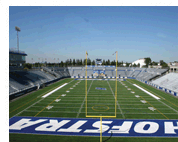A Second Chance To Change A Life
He wasn’t quick. He was fast. He flew down the ice. Dan Brady played recreational hockey at the C level, but he played the game hard and he used his speed.
When Dan was a teenager, he would not take a soda or a beer at the rink bar after a game. Pure water was his preference as he was training.
Dan’s training focused on his passion for the fire department. He rose to the rank of lieutenant and he also was on his town’s team in the national Firefighter Combat Challenge. Fast, disciplined and fully committed. Then something changed.
Dan moved across the state border. He left the fire department for a technician job but continued to play hockey. He then joined a motorcycle club, left it and joined another club.
Training no longer was a priority in Dan’s life. He started drinking and using drugs. Then, he was in an accident.
Dan doesn’t remember the day and he doesn’t remember the crash. He was told that he slammed into a tree after a night of drinking at a motorcycle clubhouse. He broke several vertebrae, lapsed into a coma and now doesn’t remember the several months preceding the accident.
At 29 years of age, Dan has taken full responsibility for his failure. He also has refocused his life. Dan is involved with sports again by using an adaptive wheelchair. He participates in kayaking, waterskiing, golf, softball, rugby, sled hockey and hand-cycling. He also drives a specially-equipped van and is learning to move unassisted from his bed and into a wheelchair.
Dan admits he is no longer that person on the motorcycle. He never wants to see that guy again. He now wants to talk to youth about his life.
Dan feels the young people need to hear his story so they can meet the guy before the accident and learn how he shoulders the blame for the way his life changed. He will be happy if he could change just one person’s life for the better before it is too late.









